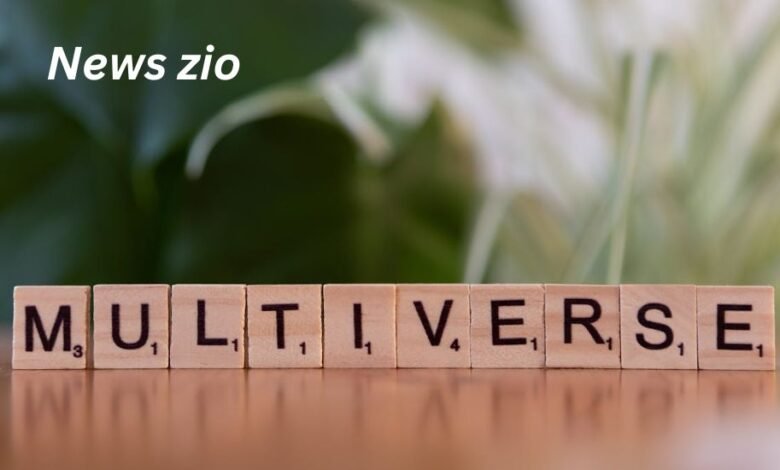Bane of My Existence Meaning: Origins, Usage, and Real-Life Examples

Language is filled with colorful expressions that add drama and emotion to our everyday conversations. One of the most intriguing is the phrase “bane of my existence.” This old idiom has survived centuries, carrying with it both literary weight and modern pop-culture appeal. But what does it really mean? Is it always used negatively? And where did it originate?
In this article, we will explore the bane of my existence meaning, uncover its origins, and break down its usage in literature, media, and daily life. Along the way, we’ll answer related questions such as: What does it mean to be the bane of my existence? Is it a compliment? Who first used it? And is it “vain” or “bane of my existence?”
What Does “Bane of My Existence” Mean?
At its core, “bane of my existence” refers to a source of constant annoyance, misery, or distress. The word “bane” comes from Old English, meaning slayer or poison. Over time, its meaning softened into “a cause of ruin or persistent frustration.”
When someone says “You are the bane of my existence,” they’re emphasizing that a particular person, habit, or circumstance is causing them continuous trouble or irritation.
For example:
-
“My neighbor’s barking dog is the bane of my existence.”
-
“Unfinished paperwork is the bane of my existence at work.”
It conveys strong frustration, often in a slightly dramatic or exaggerated way.
What Does It Mean to Be the Bane of My Existence?
If you are called the bane of someone’s existence, it means you make their life difficult. The phrase is rarely used lightly—it signals that the person sees you as a constant source of irritation.
However, in modern pop culture (especially in romantic drama), the phrase can also be delivered with a mix of affection and exasperation. For instance, in Bridgerton, the character Anthony Bridgerton famously says: “You are the bane of my existence and the object of all my desires.” Here, the phrase reflects both annoyance and irresistible attraction.
Is “Bane of My Existence” a Compliment?
No, it is not a compliment. Traditionally, the expression conveys irritation, not admiration. If someone says you’re the bane of their existence, they’re highlighting the problems you bring into their life.
That said, context matters. In literature and film, the phrase may sometimes be twisted into a romantic or playful statement—combining frustration with love. But in everyday language, it’s still considered negative.
Is the Bane of My Existence Good or Bad?
The phrase is overwhelmingly bad in tone. It represents struggle, burden, or unhappiness. Nobody wants to be the “bane” of someone’s existence, unless it’s being used in a flirtatious or joking way.
For instance:
-
Good usage: “Chocolate is the bane of my existence—I can’t resist it.” (Here, it’s negative but playful.)
-
Bad usage: “Debt collectors are the bane of my existence.” (Here, it’s purely negative.)
So while not always devastatingly harsh, the idiom is never used to praise someone.
What Is the Full Quote of the Bane of My Existence?
The most quoted version today comes from Bridgerton (Season 2):
“You are the bane of my existence and the object of all my desires.”
This line is powerful because it pairs frustration (bane of my existence) with passion (object of my desires), creating a mix of love and torment.
Earlier literary examples also exist:
-
In White Fang by Jack London (1906), Lip-lip is described as the “bane of his life,” referring to a tormenting dog.
-
In an 18th-century novel, Adelaide: An Original East Indian Story, a character is said to be the “bane of her existence.”
Thus, the phrase has long been tied to hardship, suffering, and emotional weight.
What Does “My Existence” Mean in the Phrase?
In this idiom, “existence” means life itself or one’s daily reality. So when someone calls something the “bane of my existence,” they’re not limiting the irritation to a moment. Instead, they suggest that the annoyance is so deep that it affects their whole being or way of living.
It emphasizes totality—suggesting the problem overshadows one’s entire life.
What Is an Example of the Bane of My Existence?
Here are some real-world examples:
-
Technology: “Slow Wi-Fi is the bane of my existence.”
-
Workplace: “Endless meetings are the bane of my existence.”
-
Daily Life: “Laundry is the bane of my existence—it never ends.”
-
Romantic Humor: “He’s the bane of my existence, but I can’t imagine life without him.”
These examples show the phrase’s flexibility—from serious complaints to humorous exaggerations.
Who Says “You Are the Bane of My Existence”?
Several sources across literature and culture have popularized the phrase:
-
Jack London’s White Fang (1906): Lip-lip as the bane of White Fang’s life.
-
18th-century novels like Adelaide: An Original East Indian Story.
-
Modern pop culture: Anthony Bridgerton’s famous romantic declaration.
-
Everyday speech: Used casually by people to describe their greatest frustrations.
The idiom has therefore traveled from classic literature to Netflix drama to our everyday vocabulary.
Is It “Vain” or “Bane of My Existence”?
A common mistake is to say “vain of my existence.” The correct word is “bane.”
-
Bane = a source of harm, distress, or misery.
-
Vain = full of pride, or futile/worthless.
Since the idiom refers to something harmful or frustrating, only “bane” makes sense. “Vain of my existence” is incorrect and has no established meaning.
The Origins of the Phrase
The roots of “bane” lie in Old English bana, meaning “slayer” or “killer.” Historically, “bane” referred to deadly forces, poisons, or fatal threats. For instance:
-
“Wolfsbane” = a poisonous plant fatal to wolves.
-
“Ratbane” = an old word for rat poison.
By the 18th and 19th centuries, the phrase “bane of my existence” was being used metaphorically to describe not literal poison but emotional or situational torment.
This evolution from deathly seriousness to figurative frustration explains why the phrase still feels powerful today.
The Modern Popularity of the Idiom
While the expression was once literary, it’s now deeply woven into pop culture:
-
Movies and TV shows frequently use it for dramatic effect.
-
Romance novels employ it in love-hate dynamics.
-
Social media users apply it humorously (“Traffic is the bane of my existence!”).
Its endurance comes from its ability to dramatize even the smallest irritations.
Why the Phrase Resonates Emotionally
The power of the phrase lies in its exaggeration. By calling something the “bane” of your whole existence, you elevate a problem into a life-defining struggle. It makes even small annoyances seem epic.
This is why people love to use it in both serious and playful contexts—it captures frustration vividly while leaving room for humor.
Conclusion
The bane of my existence meaning is clear: it refers to something or someone that consistently causes misery, frustration, or trouble. Though it has roots in Old English, the phrase remains alive and relevant in literature, pop culture, and everyday speech.
Whether said in frustration (“These deadlines are the bane of my existence”) or in romance (“You are the bane of my existence and the object of all my desires”), the phrase carries weight, drama, and timeless expression.
So the next time you hear it—or use it—you’ll know you’re tapping into centuries of linguistic history.
Article published by News Zio



